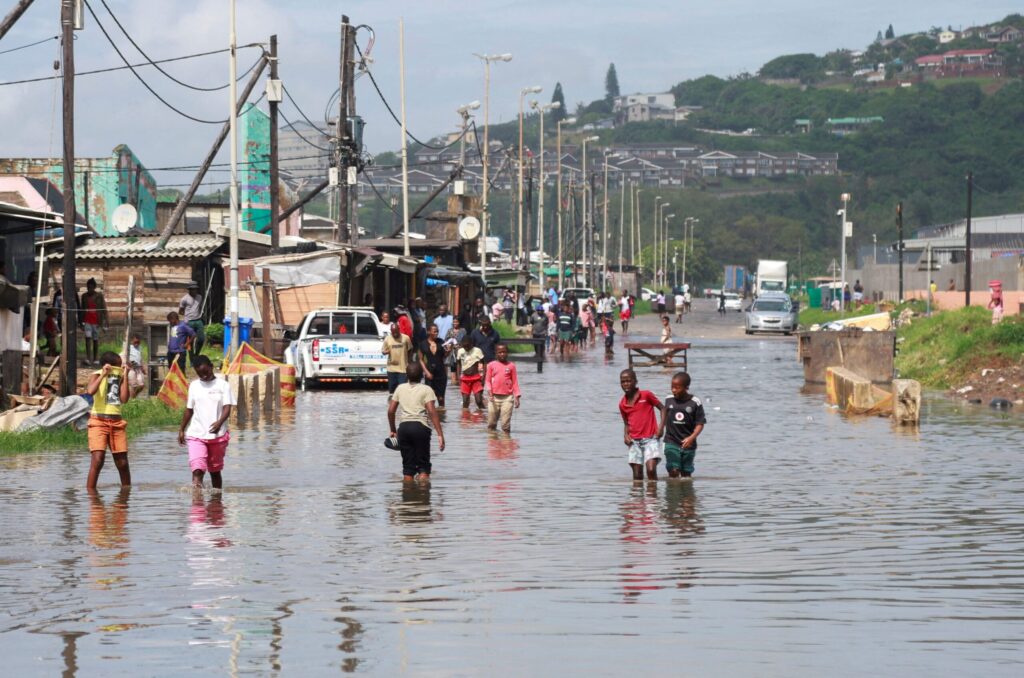South Africa’s public works and infrastructure minister, Dean Macpherson, visited the Gulf in February to drum up investment in infrastructure, energy, and real estate projects back home.
The minister travelled to Kuwait, the UAE, Saudi Arabia and Qatar, meeting sovereign wealth funds, ministries, state agencies and local businesses. Among the names on the roster of visits were the Emirates Investment Authority, Mubadala Investment Company, Msheireb Properties, the Qatar Investment Authority and the Saudi Development Fund.
South Africa’s new government of national unity is looking to attract ZAR 100 billion ($5.5 billion) in infrastructure financing. Last year, it promised to turn the country into “a construction site” to reverse decades of underinvestment. The country is in desperate need of funding to build roads, bridges, schools, hospitals, housing and electricity and water infrastructure.
Although no deals were signed, the minister said the tour revealed great potential for South African companies to do business in the region, most notably at Neom – Saudi Arabia’s money-pit real estate project – and for Middle Eastern companies and funds to invest in South Africa.
The UAE is South Africa’s largest trade partner in the GCC, followed by Saudi Arabia
Several South African companies will be familiar names to those involved in the GCC projects industry, including Zutari (formerly Aurecon) and Murray & Roberts, which worked on the Burj Al Arab and Dubai International Airport in the UAE.
The UAE is South Africa’s largest trade partner in the GCC, followed by Saudi Arabia. Trade between the UAE and South Africa totalled nearly $6.5 billion in 2023. The chief imports from South Africa were diamonds and gold, followed by citrus fruits. The main products exported from the UAE were refined petroleum and copper wire.
Some of the UAE’s leading international investors are already present in the South African market.
The Dubai-based Amea Power, a recurring name in the African projects industry, is developing a 120-megawatt (MW) photovoltaic solar project at Doornhoek and was awarded two contracts this year to build battery energy storage capacity in the North West Province. Amea Power is hoping to develop more than one gigawatt (GW) of solar capacity – enough to power about 800,000 homes – in South Africa.
South Africa has one of the world’s most active renewable energy independent power producer procurement programmes. The multi-phase programme aims to strengthen the country’s electricity sector, which has long suffered from blackouts and load shedding after decades of corruption and neglect. The programme hinges on successfully mobilising private capital to deliver 22.5GW of new capacity by 2030.
In December, Infinity Power, a joint venture between Infinity in Egypt and Masdar of Abu Dhabi, was awarded contracts to develop six solar power projects with a combined capacity of 1.3GW, under the seventh bid round of the renewable energy independent power producer procurement programme. Infinity Power already operates 624MW of wind power in the country.
To encourage greater private sector participation in South African infrastructure, the government has introduced new regulations for public-private partnerships, which will take effect on 1 June, providing clearer rules for unsolicited bids. Subsequently, the government wants to see more private sector participation in logistics and minerals. Later this year, it will begin rolling out a programme of independent transmission schemes.
With public infrastructure spending over the next three years projected at more than ZAR 1 trillion, the South African government also plans to issue its first infrastructure bond in 2025/26, which may attract participation from the Gulf.
It is obvious why Macpherson, who is less than nine months into the job, made a beeline for the oil-rich GCC states, which have set expanding trade ties with Africa among their strategic priorities.
Macpherson said that many of the Gulf ministers, state agencies and companies he and his team engaged with “had not met with South African representatives in several years.” He said he expected to be a regular visitor to the Middle East in the years ahead.
But with the government of national unity keeping a much stricter eye on spending, his team will quickly need to show tangible results for their efforts.
Liz Bains is a projects-focused business journalist covering Africa and the Middle East
Register now: It’s easy and free
AGBI registered members can access even more of our unique analysis and perspective on business and economics in the Middle East.
Why sign uP
Exclusive weekly email from our editor-in-chief
Personalised weekly emails for your preferred industry sectors
Read and download our insight packed white papers
Access to our mobile app
Prioritised access to live events
Already registered? Sign in
I’ll register later



